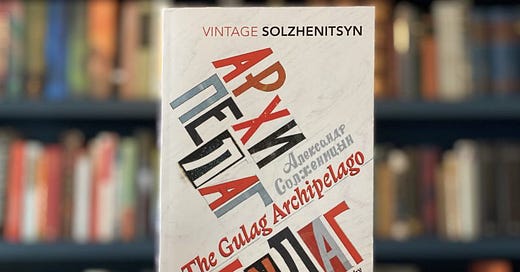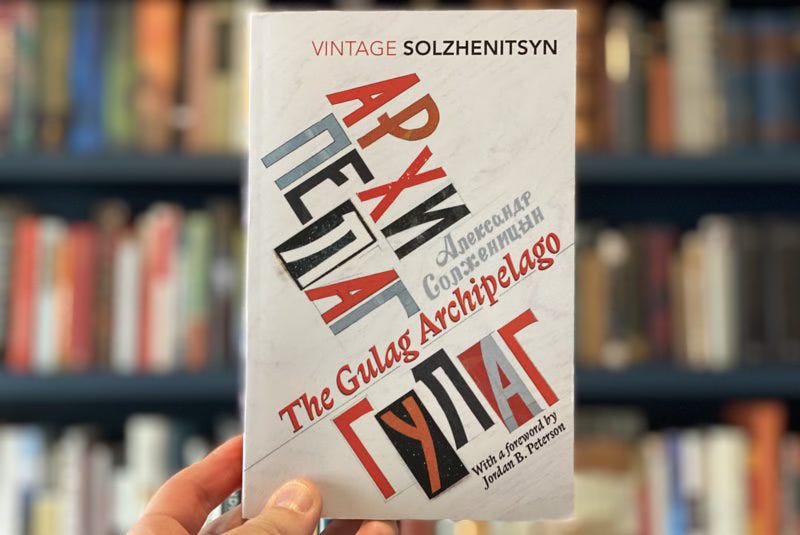Solzhenitsyn's Question
"What kind of disastrous path lies ahead of us if we do not have the chance to purge ourselves of that putrefaction rotting inside our body?"
The Gulag Archipelago was the final book on my 2019 reading list. My mother-in-law had been suggesting it to me for nearly 10 years. It was life-changing in many ways, and when I rank the books I've read for this project, this one comes in as the #2 most important book. I highlight a lot of those life-changing ideas in my podcast episode about The Gulag Archipelago.
There is one part in particular that I've been thinking about over the past week. In the chapter with the famous "line dividing good and evil" quote, Solzhenitsyn says the following:
What kind of disastrous path lies ahead of us if we do not have the chance to purge ourselves of that putrefaction rotting inside our body?
This comes in a chapter where Solzhenitsyn notes the fact that Germany acknowledged their evil during WWII through the Nuremberg Trials where many thousands of Nazis were convicted of their crimes. Solzhenitsyn laments the fact that Russia never had a similar reckoning for the crimes of the Soviet era and in particular, the crimes of the gulag system. Only a handful of people were ever punished.
What role does Russia's lack of reckoning with that awful 20th century past have in what we see today? What message is sent when there is no accountability for atrocities? And will we see a restoration of the gulag system to house the new dissenters and enemies?
If you haven't read The Gulag Archipelago, I highly recommend it. It's a massive three-volume set, but I read the abridged version for this reading project. If you're not up for the three volumes, the abridged version gets the point across. There are two abridged versions available, one with a foreword by Anne Applebaum and another with a foreword by Jordan Peterson.




